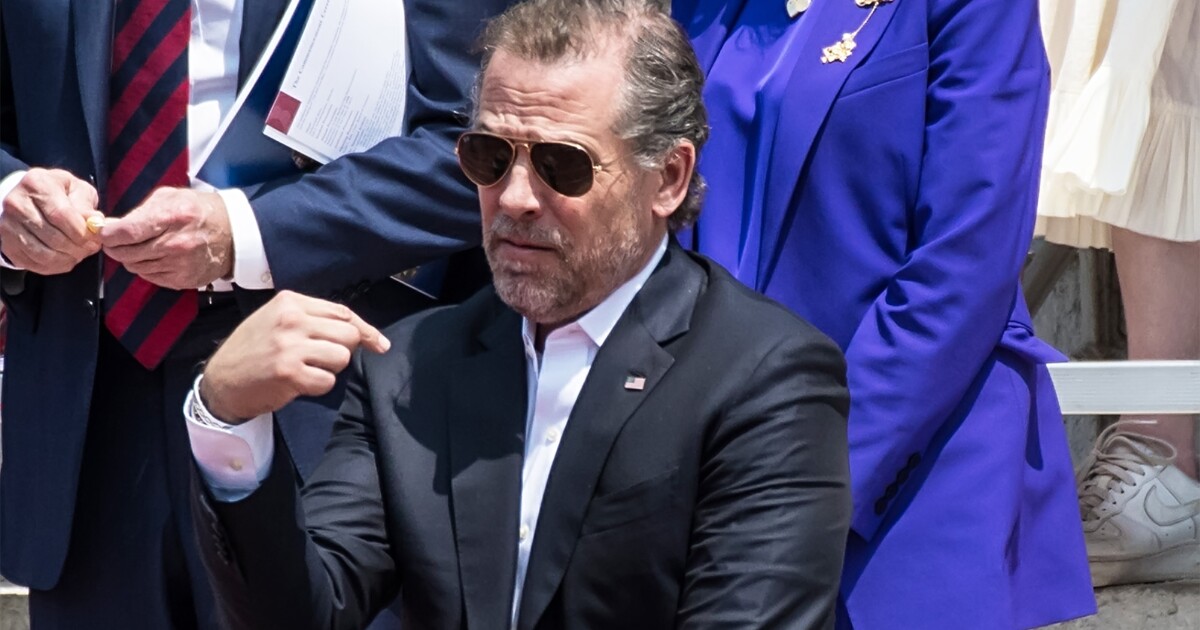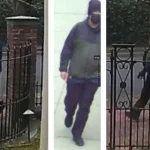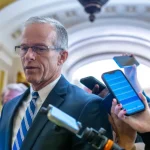

A fourth IRS official has told Congress about roadblocks that now-special counsel David Weiss faced last year in attempting to bring charges against Hunter Biden outside his district in Delaware.
Darrell Waldon, the former IRS special agent in charge of the agency’s Washington field office, told the House Ways and Means Committee in a closed-door interview earlier this month about a number of challenges he witnessed during his two years on the case, according to a transcript of the interview obtained by the Washington Examiner.
HOUSE GOP LEADERS SIGNAL POSSIBLE FUNDING BREAKTHROUGH WITH CONSERVATIVE HOLDOUTS
Waldon also discussed the IRS’s decision to remove a whistleblower, Gary Shapley, and the rest of Shapley’s IRS investigative team from the Hunter Biden investigation after Weiss stated he was no longer on speaking terms with Shapley.
“Mr. Weiss went to the U.S. Attorney’s Office — I can’t recall the dates — and they did not agree to prosecute the case in D.C.,” Waldon, who in February took another job within the IRS that moved him away from the Hunter Biden case, said.
“I’m aware that it was presented to the District of Columbia and, at some point, the Central District of California, I believe,” he testified.
Waldon was one of several officials from the IRS, FBI, and the U.S. attorney’s office in Delaware who attended an Oct. 7, 2022, meeting that Shapley described as a turning point for him in the investigation.
Although Waldon did not dispute the accuracy of notes that Shapley sent in an email shortly after the meeting, he did disagree with Shapley’s description of the meeting as contentious, and he said he did not independently recall some of the issues Shapley had included in his notes.
For example, Waldon said he recalled conversations about the options Weiss had left to move the case forward but said he did not remember Weiss specifically discussing a request to become special counsel.
“Generally, I didn’t find it to be as contentious as Mr. Shapley had stated,” Waldon said. “There were certainly differences of opinion expressed, but that’s typical.”
Waldon said his response to Shapley at the time of the meeting last fall was that he “agreed to what generally happened in the meeting.”
Waldon, who was above Shapley and another IRS whistleblower, Joseph Ziegler, on the IRS’s chain of command, had no role in the Hunter Biden investigation until years after it began.
Upon taking a new job atop the Washington field office in April 2021, which placed him in a supervisory role on the Hunter Biden case, Waldon testified that he heard from Shapley about investigative steps that Shapley felt the Justice Department or certain prosecutors had blocked him from taking, such as asking witnesses about other members of the Biden family or executing at least one search warrant.
But Waldon also felt that Shapley’s attempts to blame those roadblocks on political bias was “unsubstantiated.”
Waldon said he did not recall learning when the U.S. attorney in California, who was appointed by President Joe Biden, decided not to allow Weiss to charge Hunter Biden in his district. However, he did say he believed in the strength of the case.
“Generally speaking, if at that time the case went to the Central District of California, I would’ve agreed with it,” Waldon said.
Waldon’s testimony supported that of another IRS agent, Director of Field Operations Michael Batdorf, who also told the committee this month that the Joe Biden-appointed U.S. attorneys in Washington, D.C., and California declined to partner with Weiss on charges in their respective districts, blocking his ability to move forward for months.
Both Shapley and Ziegler testified to Congress this spring about the previously unknown involvement of the other U.S. attorneys.
Their involvement drew scrutiny because Attorney General Merrick Garland and others have frequently pointed to the fact that the Hunter Biden case is in the hands of a U.S. attorney that Joe Biden did not appoint, insulating it from bias. But Joe Biden-appointed U.S. attorneys appear to have placed significant limitations on how far the case could proceed for nearly a year.
Waldon said Weiss’s problems with Shapley led to his decision to remove the investigative team that Shapley oversaw.
“The U.S. Attorney’s Office was no longer working or talking with Mr. Shapley. And there was no immediate — I didn’t think that that would be resolved quickly,” Waldon said. “And in order to move the investigation forward, I recommended that, you know, he be removed so that we could continue to push the investigation forward.”
Batdorf, Waldon’s supervisor, also said he felt that Shapley’s continued presence on the team might dissuade Weiss from advancing the case.
Both said Weiss’s tensions with Shapley reached a boiling point after the Delaware U.S. attorney’s office demanded all of the emails and records written by the IRS investigative team that could be relevant in court.
Shapley told Congress this spring that he felt the effort amounted to a fishing expedition aimed at uncovering the complaints about the case that he’d documented for months, although Waldon and Batdorf did not characterize the discovery requests that way.
CLICK HERE TO READ MORE FROM THE WASHINGTON EXAMINER
Some Justice Department officials have argued that seeking permission from a fellow U.S. attorney to charge a defendant in a jurisdiction outside one’s own is standard practice for prosecutors.
However, Garland had stated unequivocally that Weiss had all the authority he needed to bring criminal charges in any district he wanted months ago, and that did not appear to become accurate until Weiss requested a special counsel appointment in August.





